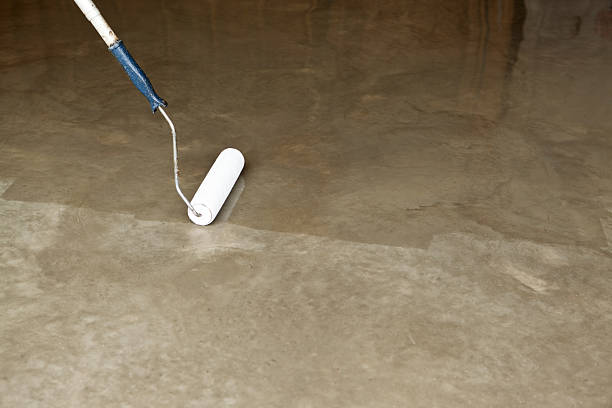

Concrete is one of the most durable and versatile materials used in residential and commercial properties. From driveways and patios to walkways and foundations, Concrete Sealing in Cincinnati provides a solid foundation for various surfaces. However, like any material exposed to weather, traffic, and time, concrete requires protection to maintain its integrity and appearance. This is where concrete sealing plays a vital role.
Concrete sealing is the process of applying a protective coating or sealant to the surface of your concrete. This sealant acts as a barrier against water, chemicals, oil stains, and other elements that can degrade the surface over time. A properly sealed concrete surface not only enhances durability but also improves its aesthetic appeal.
Concrete sealing involves the use of specialized sealants designed to penetrate the surface or create a protective film over the concrete. Depending on the type of sealer used, it may either be absorbed into the concrete pores or form a visible layer on top. These sealers block moisture and prevent contaminants from penetrating the material, reducing the likelihood of cracking, staining, or surface deterioration.
Concrete sealing provides numerous benefits for property owners. Firstly, it helps preserve the structural integrity of concrete surfaces by minimizing water infiltration and freeze-thaw damage. It also prevents oil and chemical stains from seeping into the concrete, making it easier to maintain cleanliness.
Additionally, concrete sealing enhances the surface’s appearance by deepening its natural color and providing a glossy or matte finish. Many property owners combine concrete sealing with pressure washing in Cincinnati to ensure the surface is thoroughly cleaned before the sealant is applied.
Without proper maintenance, concrete surfaces can become vulnerable to weather-related issues, such as cracks and discoloration. Dirt, grime, and algae buildup can also diminish their visual appeal. By incorporating services like roof washing or best power washing into your property’s routine care, you can keep your surfaces clean and prepared for sealing.
Concrete sealing should ideally be done every two to three years, depending on the climate and usage of the area. Regular reapplication ensures that the protective barrier remains effective over time.
Concrete sealers come in various types, each suited for different needs. Penetrating sealers are excellent for preserving the natural look of concrete while providing protection against water and chemical intrusion. Acrylic sealers create a visible coating that enhances appearance and offers UV protection. Epoxy and polyurethane sealers are ideal for heavy-duty surfaces, as they provide superior resistance to abrasion and chemicals.
Choosing the right sealer depends on factors like the location of the concrete, the level of foot or vehicle traffic, and the desired finish.
Before applying a sealant, it’s essential to ensure that the concrete surface is clean and free of debris, stains, and contaminants. Pressure washing plays a critical role in this preparation process.
Pressure Washing removes dirt, mold, and oil stains that could compromise the sealant’s adhesion. For property owners in Cincinnati, hiring a professional service specializing in pressure washing ensures that your concrete is thoroughly cleaned before sealing. This step guarantees better results and a longer-lasting seal.
While DIY concrete sealing is possible, it may not provide the same results as professional services. The process requires precise preparation, the right choice of sealant, and careful application. Professionals not only have the expertise to apply the sealer evenly but also use tools like the best power washing equipment to prepare the surface beforehand.
If you’re unfamiliar with concrete sealing techniques or don’t have the right tools, hiring a professional service can save you time and effort while ensuring a superior finish.
Timing is critical when sealing concrete. Weather conditions such as temperature and humidity play a significant role in the success of the application. It’s best to avoid sealing during rainy or extremely hot weather, as these conditions can interfere with the sealant’s curing process.
Spring and fall are often ideal times for concrete sealing, as the moderate temperatures allow the sealer to set properly. Consulting a professional service for roof washing or pressure washing can help you determine the best time to seal your concrete.
Sealed Concrete in Cincinnati significantly enhances the appearance of your property. The process gives driveways, patios, and walkways a polished, uniform look while preventing discoloration from stains or UV rays. Many property owners notice an immediate improvement in their home’s curb appeal after sealing their concrete surfaces.
Whether you’re looking to maintain your concrete or prepare it for resale, sealing is a valuable investment in both aesthetics and functionality.